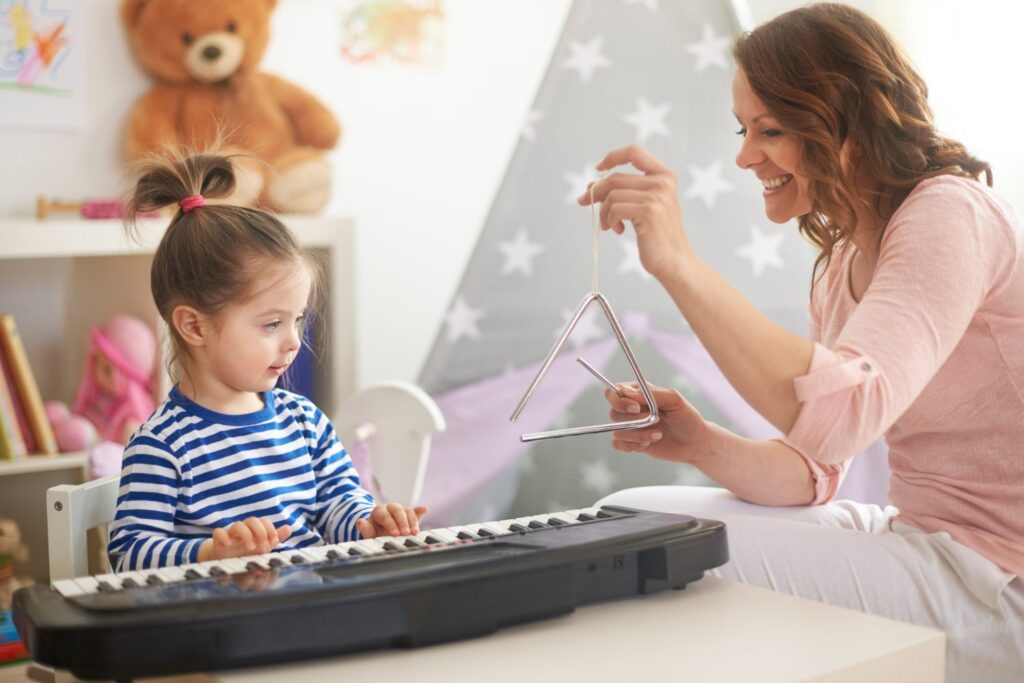The journey of childhood is a period of profound discovery, where young minds absorb knowledge about themselves and the world around them. It’s during this crucial phase that the physical and mental foundations for a lifetime are laid. As a parent, you aspire to equip your child with the tools they need to thrive not only during their formative years but throughout their entire life. One of the most valuable gifts you can offer your child is the gift of music. Music, with its multifaceted benefits, plays a pivotal role in nurturing early childhood development. Let’s delve into the myriad ways in which music positively impacts your child’s growth.
1. Fine-Tuning Motor Skills with Music
Making music, whether it involves tapping, bouncing, or dancing, serves as a dynamic tool for refining fine and gross motor skills. Simple melodies and interactive play help forge vital neural connections in the developing brain of your child. These connections will serve as a foundation for their physical coordination as they grow.
2. Music: The Language Expander
Music is a silent teacher of language. It helps us absorb words and expressions more effectively, with repetitive patterns aiding in memorization. Enhanced auditory processing skills acquired through music not only boost language development but also improve the ability to process and understand speech, laying the groundwork for effective communication.
3. Fostering Intimacy through Music
The soothing power of music extends to building intimate bonds between children and their caregivers. Studies have shown that infants listen more attentively to lullabies than to baby talk or adult speech. When parents or caregivers sing lullabies with varying pitch, tone, and lyrics, babies respond with a profound sense of security and comfort.
4. Music as a Gateway to Literacy and Numeracy
From their earliest days, babies can distinguish between various sounds, including recognizing their mother’s voice within weeks of birth. Exposure to music in the early stages enhances a child’s innate ability to decipher sounds and words, providing a strong foundation for literacy and numeracy skills.
5. Expanding Vocabulary through Music
Even though toddlers may not fully grasp the meaning of the words in a song or nursery rhyme, they begin to comprehend storytelling through music. Songs serve as valuable sources of grammar, vocabulary, and sentence structure, helping toddlers develop their linguistic abilities.
6. Music’s IQ Boost
Studies have demonstrated that children who receive piano lessons over the course of a school year exhibit an average increase of three IQ points compared to their peers. This suggests that music has a lasting impact on cognitive development. The benefits of music education extend beyond the realms of melody, reaching into the intellectual arena.
While it’s unlikely that your child will become the next Mozart, remember that it’s perfectly okay. The true value of music education lies not in creating prodigies but in harnessing the cognitive and physical advantages it offers during early childhood. These benefits are the stepping stones to a successful future, fostering holistic development and enriching your child’s life in countless ways. So, don’t underestimate the profound impact of music – it’s a gift that keeps on giving, shaping young minds for a lifetime of growth and achievement.


